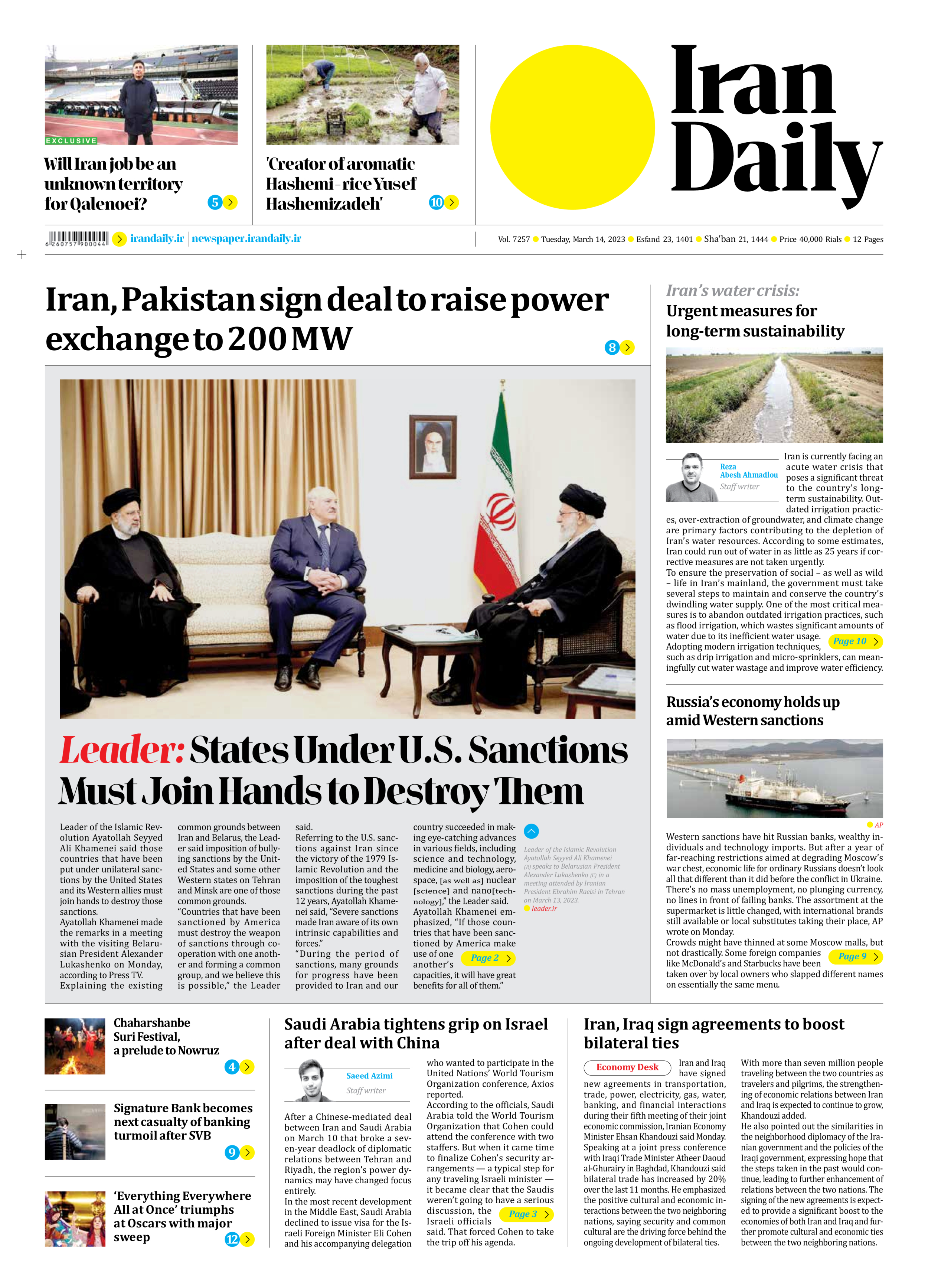
Russia’s economy holds up amid Western sanctions
Western sanctions have hit Russian banks, wealthy individuals and technology imports. But after a year of far-reaching restrictions aimed at degrading Moscow’s war chest, economic life for ordinary Russians doesn’t look all that different than it did before the conflict in Ukraine.
There’s no mass unemployment, no plunging currency, no lines in front of failing banks. The assortment at the supermarket is little changed, with international brands still available or local substitutes taking their place, AP wrote on Monday.
Crowds might have thinned at some Moscow malls, but not drastically. Some foreign companies like McDonald’s and Starbucks have been taken over by local owners who slapped different names on essentially the same menu.
“Economically, nothing has changed,” said Vladimir Zharov, 53, who works in television. “I work as I used to work, I go shopping as I used to. Well, maybe the prices have risen a little bit, but not in such a way that it is very noticeable.”
Russia’s economy has weathered the West’s unprecedented economic sanctions far better than expected. But with restrictions finally tightening on the Kremlin’s chief moneymaker – oil – the months ahead will be an even tougher test.
Economists say sanctions on Russian fossil fuels only now taking full effect – such as a price cap on oil – should eat into earnings that fund the war. Some analysts predict signs of trouble – strained government finances or a sinking currency – could emerge in the coming months.
But other economists say the Kremlin has significant reserves of money that haven’t been hit by sanctions, while links to new trade partners in Asia have quickly taken shape. They say Russia isn’t likely to run out of money this year but instead will face a slow slide into years of economic stagnation.
“It will have enough money under any kind of reasonable scenario,” Chris Weafer, CEO and Russian economy analyst at the consulting firm Macro-Advisory, said.
Russia will keep bringing in oil income, even at lower prices, so “there is no pressure on the Kremlin today to end this conflict because of economic pressures,” he said.
As the economy teeters between sanctions and resilience, what everyday Russians can buy has stayed remarkably the same.
It is clear goods are skirting sanctions through imports from third countries that aren’t penalizing Russia. For example, Armenia’s exports to Russia jumped 49% in the first half of 2022. Chinese smartphones and vehicles are increasingly available.
The auto industry is facing bigger hurdles to adapt. Western automakers have halted production, with sales plunging 63% and local entities taking over some factories and bidding for others.
Unlike European automakers, some corporations are far from bailing. While 191 foreign companies have left Russia and 1,169 are working to do so, some 1,223 are staying and 496 are taking a wait-and-see approach.
One big reason for Russia’s resilience: record fossil fuel earnings of $325 billion last year as prices spiked. The surging costs stemmed from fears that the war would mean a severe loss of energy from the world’s third-largest oil producer.
That revenue, coupled with a collapse in what Russia could import because of sanctions, pushed the country into a record trade surplus — meaning what Russia earned from sales to other countries far outweighed its purchases abroad.
The boon helped bolster the ruble after a temporary crash and provided cash for government spending on pensions, salaries and — above all — the military.
The economy shrank 2.1% last year, Russia’s statistics agency said. The International Monetary Fund predicts 0.3% growth this year — not great, but hardly disastrous.







